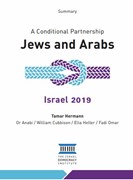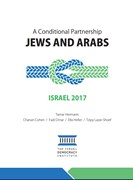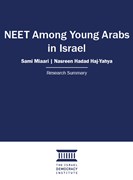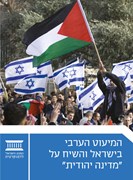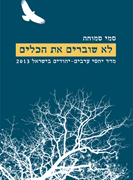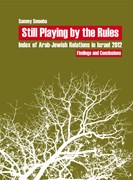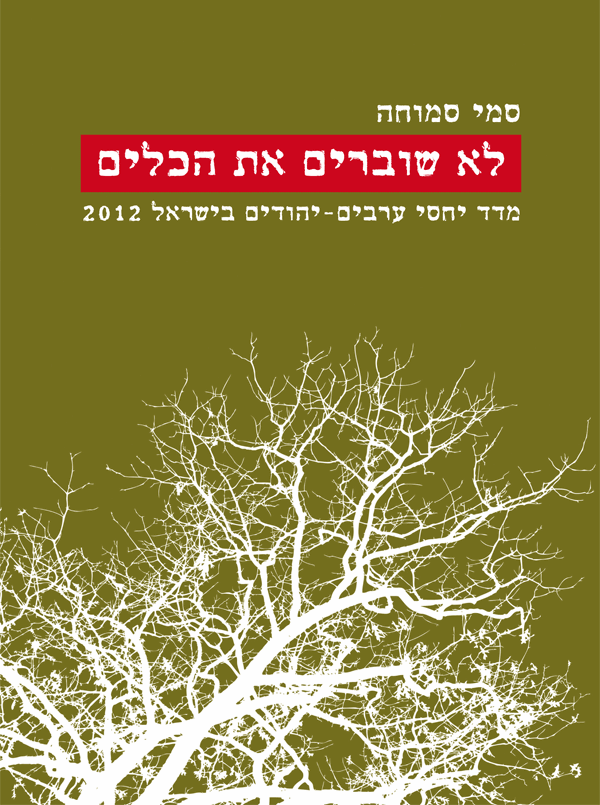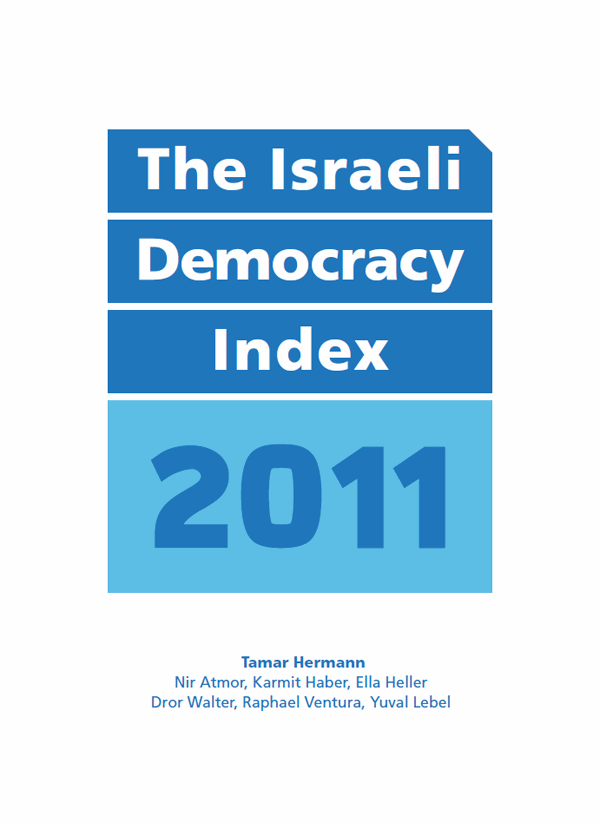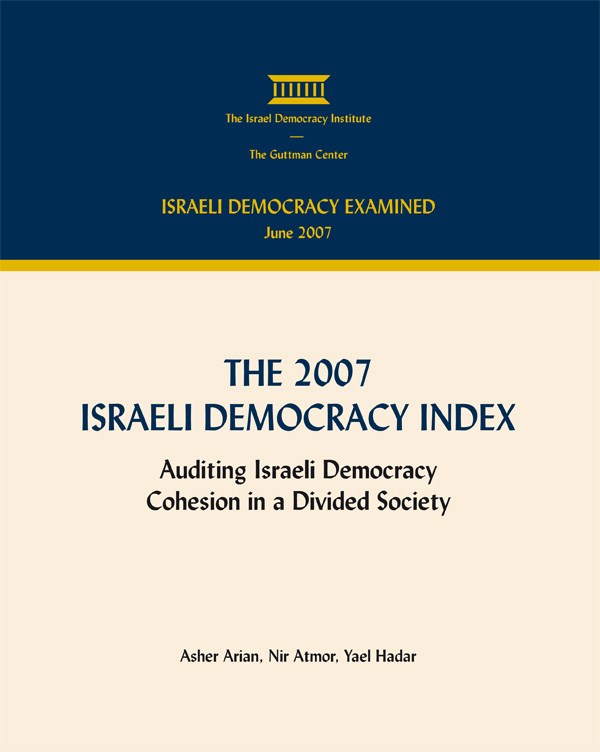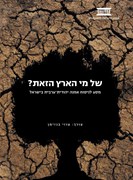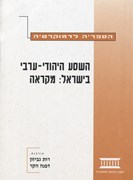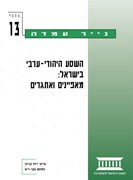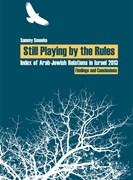

Publications Regarding Arab-Jewish relations
Articles

Lack of Protective Structures Against Missile Attacks in Arab Localities
Written By: Adv. Lital Piller
As Israeli citizens are facing severe threats to their safety during following an escalation of hostilities between Israel and Iran, it is, once again, clear that Arab localities lack proper protective infrastructure against missile attacks.

The Two Coalitions Israel Needs Now
Written By: Yohanan Plesner
It is increasingly clear that Israel’s future depends on the forging of two coalitions. One is a multinational alliance determined to turn the Palestinian issue from a driver of conflict into an engine of peace. The other, is an internal Israeli coalition ready to pursue a series of bold social, economic, and political reforms.

Advisory Opinion of the International Court of Justice on the Legal Consequences of Israel's Policies and Practices in the "Occupied Palestinian Territory"
Written By: Dr. Eran Shamir-Borer, Adv. Mirit Lavi
An in-depth analysis of the advisory opinion of the ICJ on the legal consequences of Israel's policies and practices in the 'occupied Palestinian territory.'
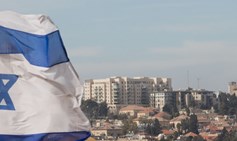
Nation-State Law Explainer
Written By: Dr. Amir Fuchs, Prof. Suzie Navot
Fact Sheet: The Basic Law: The Nation-State

A Year Later: Arab-Jewish Relations in Mixed Cities
Written By: Dr. Nasreen Haddad Haj-Yahya, Adv. Oded Ron
Before the next violent outbreak, let’s quickly address the needs of mixed cities.
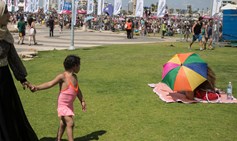
Arab Residents of Mixed Cities: A Snapshot
Written By: Dr. Nasreen Haddad Haj-Yahya, Adv. Oded Ron, Ben Fargeon
This study aims to provide an up-to-date snapshot of the current situation in mixed cities alongside a description of trends in Israel’s mixed cities over time, in five closely related fields—welfare, education, higher education, employment, and crime—by presenting data collected over a period of time, as a critically important input to sound policymaking.
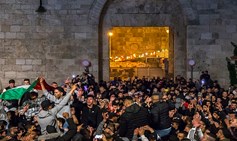
Israel's Jerusalem Syndrome
Written By: Dr. Nasreen Haddad Haj-Yahya
The recent clashes in a capital where even the smallest spark can set its streets ablaze are a direct result of the city's long-term neglect of its disadvantaged Palestinian residents, among whom poverty rates are double that of Jewish Jerusalemites.
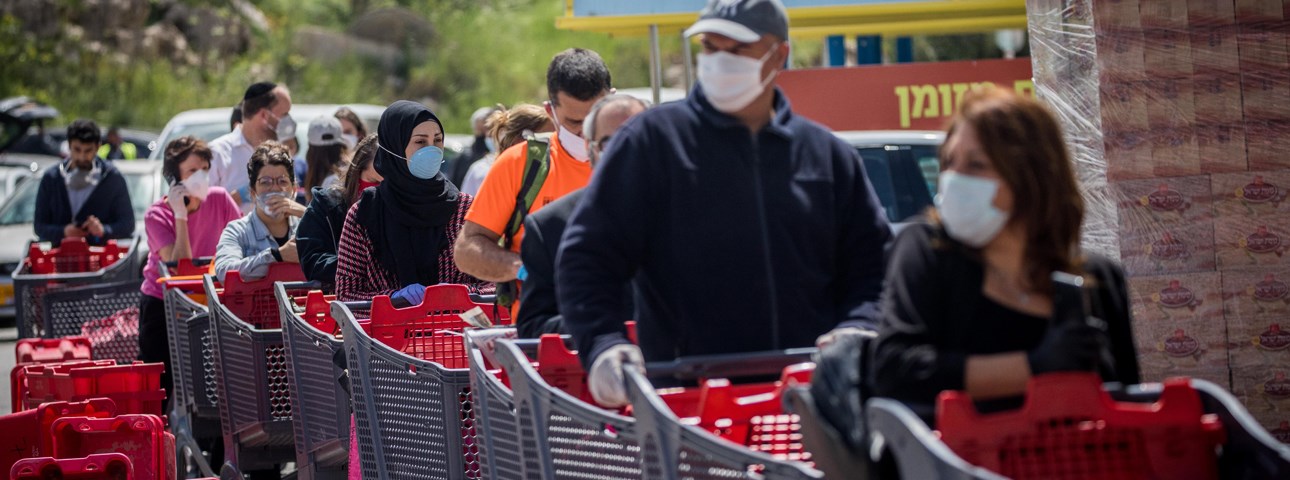
Second Wave is a Matter of Time
More than half of Israelis think a second wave is a matter of time and 39% think that the return to normalcy is too fast
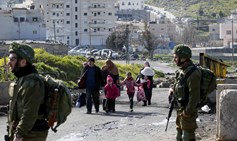
Over Half of Jewish Israelis Support Annexation
Written By: Prof. Tamar Hermann, Dr. Or Anabi
The Israeli Voice Index for April 2020, found that 52% of Jewish Israelis support Prime Minister Benjamin Netanyahu's stated policy of extending Israeli sovereignty in the West Bank, however only 32% believes Israel will move forward with this in the coming year.
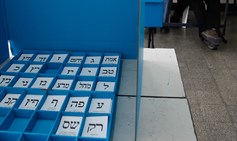
A New Political Card
Written By: Dr. Arik Rudnitzky
Has the "Deal of the Century" injected energy into Israel's third election and perhaps provided an incentive for Arab Israelis to turn out in higher numbers than September? Arik Rudnitzky uses the village of Bartaa as a possible case study.
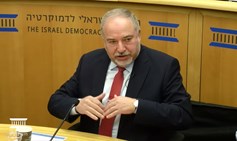
MK Liberman: " If third elections are held the outcome will be different"
MK Avigdor Liberman at IDI Annual Conference on Security and Democracy: "I fully trust the security forces know how to deal with threats in a professional manner uninfluenced by outside biases"

Some are Guilty, but All Are Responsible
Written By: Dr. Nasreen Haddad Haj-Yahya
When the PM smeared Arab Knesset members, those 'allies' who urged us to go and vote had a responsibility to protest. They didn't.
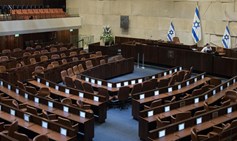
A Minority Government in Israel?
Written By: Dr. Assaf Shapira
The final results of the third election are in and Israel is in very much the same stalemate position as the previous two rounds - is a minority government the solution?
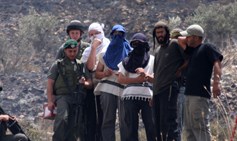
The Golem Turns on its Creator
Written By: Yair Sheleg
As a rule, it is not just their extremist ideology that has sent them to camp on the hilltops, but also the alternative they have chosen to replace the staid, bourgeois life they left behind.

Every Cloud has a Silver Lining?
Written By: Dr. Arik Rudnitzky
Arab parties can surge if they shake off the old politics - a significant number of Arabs who stayed home in April will vote if they are persuaded their leaders have integrity
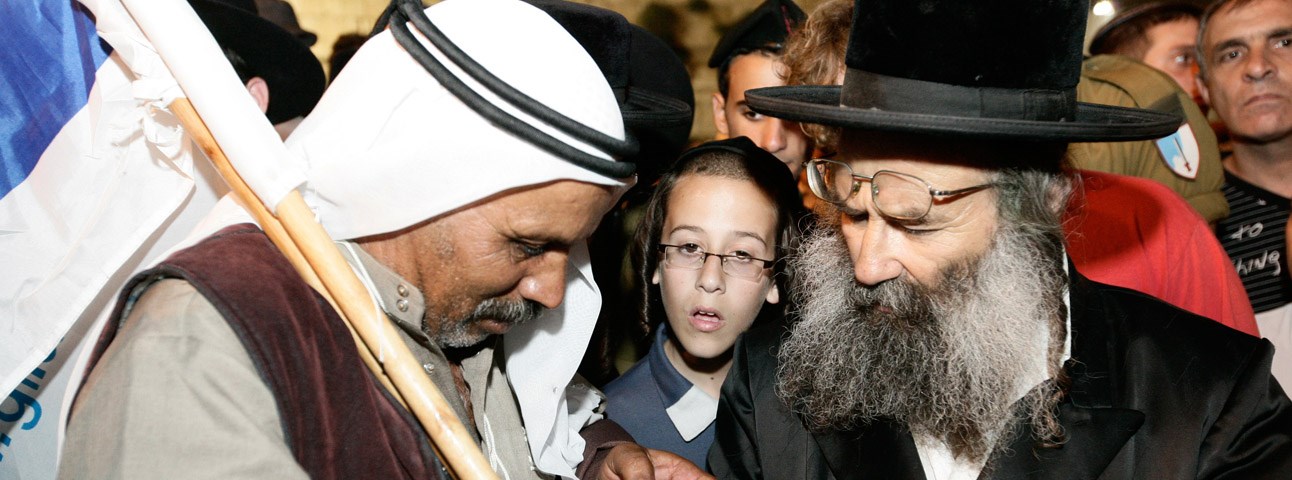
Is Israel like Iran? Hardly
Written By: Dr. Shuki Friedman
An unflattering US report on freedom of religion would have us believe that Israel is being run by an ayatollah-like regime. While some limits to freedom of religion exist, Israel is a free country
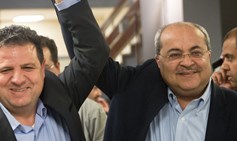
Another Chance for the Joint List
Written By: Dr. Arik Rudnitzky
Will Arab politicians take advantage of the second chance that the new elections have presented? Runing in a Joint List and reaching out to their younger voters - 60% of which didn't vote in the last election, would be the right place to start.
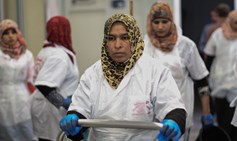
Arab Israeli Women Joining the Labor Force in Large Numbers
Written By: Dr. Nasreen Haddad Haj-Yahya, Aiman Saif, By: Linda Gradstein
Are these encouraging numbers the harbinger for positive change in Israeli society?
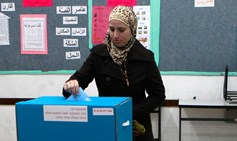
And Now, Over to the Public
Written By: Dr. Arik Rudnitzky
After abysmal Arab voter turnout, it’s time for public action. Arabs in Israel are desperate for a new discourse and leaders who connect with them -- what they don't want is more ideology
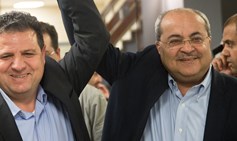
Counting the Votes
Written By: Dr. Arik Rudnitzky
Will Arab elected officials adopt a pragmatic and matter-of-fact approach and overcome the obstacles standing in the way of establishing political partnerships among them, in order to encourage Arab voters to go to the polls on Election Day?
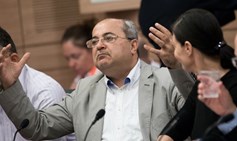
Arab Politics in the 2019 Election Campaign
Written By: Dr. Arik Rudnitzky
A review of political and ideological streams in Arab society in Israel - towards 2019 elections.
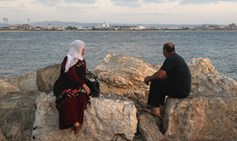
The Five-Year Plan for Arab Israelis: the Acid Test of the Upcoming Elections
Written By: Dr. Nasreen Haddad Haj-Yahya
The five-year plan for the development of the Arab community was a giant step forward towards the socioeconomic advancement of Israel’s Arabs, nevertheless the current election campaign is going to be the acid test: Is the Israeli government serious about integrating the country’s Arab citizens into the broader society, or merely in promoting the Arab economy in light of its importance for the country’s overall prosperity?
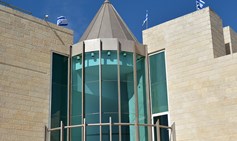
House Demolition at the Israeli Supreme Court: Recent Developments
Written By: Prof. Yuval Shany, Prof. Amichai Cohen
In its fight against terrorism, Israel has often been proud of its ability to effectively fight terrorism, while remaining faithful to democratic principles. House demolitions were always considered a necessary evil, which could be resorted to in very exceptional circumstances - are we now facing populist trends that runs contrary to the traditional ethos of subjecting counterterrorism policies to rule-of-law constraints.
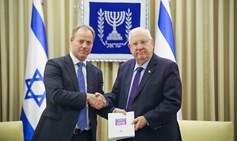
Presentation of the Israeli Democracy Index to the President of Israel
Written By: Yohanan Plesner
"Our central mission—and we see you as a partner in this—is to strengthen Israel’s democratic core in the spirit of the Declaration of Independence" says Yohanan Plesner in his address to President Reuven Rivlin.
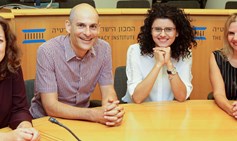
Meet the Next Generation of IDI Leaders
Written By: Rachel Cohen, Adv. Alona Vinograd, Dr. Nasreen Haddad Haj-Yahya, Daphna Aviram-Nitzan, Dr. Gilad Malach
Guaranteeing an independent Supreme Court. Integrating the Ultra-Orthodox into the IDF. Boosting participation of Arab women in the workforce. Improving the ease of doing business in Israel. These are some of the challenges facing IDI’s new cadre of program and center directors.
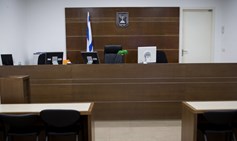
In Grand Debut, Israel's Nation-state Law Reveals Its Ugly True Colors
Written By: Prof. Mordechai Kremnitzer
The deputy president of the Jerusalem District Court inaugurated the Basic Law on Israel as the Nation-State of the Jewish People, issuing the first verdict based on it - imposing punitive damages on Hamas for the severe post-traumatic stress suffered by a Jewish Israeli wounded in a terror attack in Tel Aviv in 1998.

Jewish, Democratic—and Israeli
Written By: Yair Sheleg
We should simultaneously define Israel as the nation state of the Jewish people and at the same time---the state and home of all its citizens.

Strengthening Jewish Peoplehood In The Diaspora — But Not In Israel
Written By: Yohanan Plesner
In the bill’s final wording, the state only commits itself to act within the Diaspora to strengthen the ties of Jewish peoplehood – as if actions taken inside the Jewish state, like the reneged-upon Western Wall compromise, have no bearing on the rest of the Jewish world.
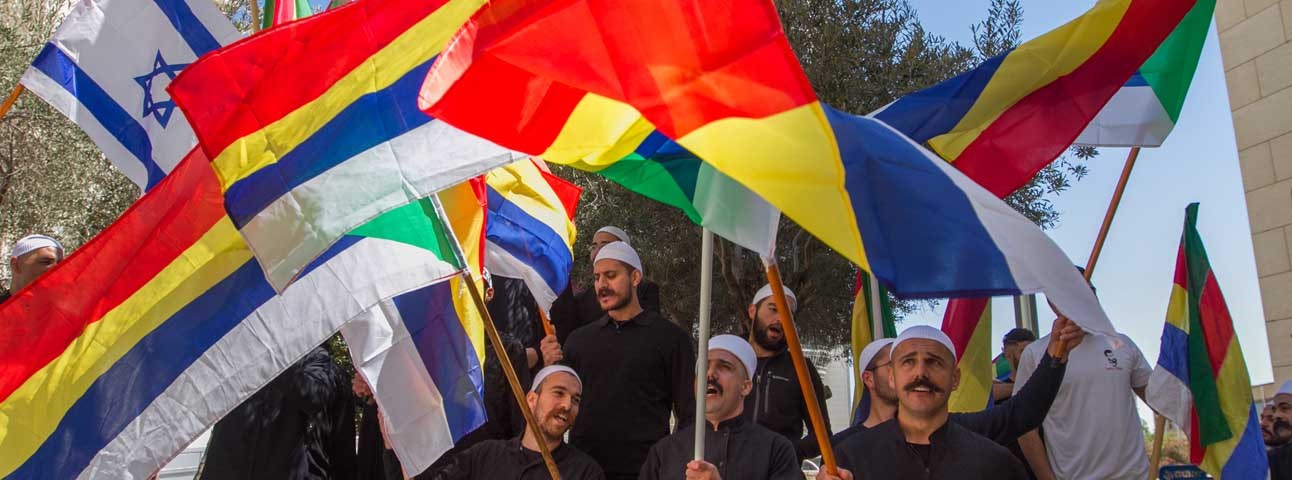
60% of Israelis Think the New Nation-State Law Should Have Included ‘Equality'
Written By: Prof. Tamar Hermann, Prof. Ephraim Yaar
The monthly Peace Index of the Israel Democracy Institute and Tel Aviv University, published today, finds that: only 52% of Jewish Israelis think it was important to pass the Nation-State law at this time.

Letter to the Israeli Government on the Nation State Bill
Written By: Yohanan Plesner , Prof. Yuval Shany, Prof. Yedidia Z. Stern
The Israel Democracy Institute issued a letter to the Prime Minister regarding the Nation State Billl, asserting that if the value of equality is not anchored in the legislation alongside the other enumerated national characteristics of the state, the law may eventually erode Israel's democratic character
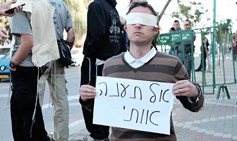
‘Special Interrogations,’ Confessions and the Duma Arson Attack
Written By: Prof. Yuval Shany, Prof. Mordechai Kremnitzer
The Lod district court decision illustrates the possible dangers to criminal defendant’s human rights though the expanding defense of necessity and the lack of separation between the preventive and criminal phases of the investigation.

Will Trump’s Peace Plan Gain Traction?
Written By: Prof. Tamar Hermann, Prof. Ephraim Yaar
The monthly Peace Index of the Israel Democracy Institute and Tel Aviv University, published today, finds that most Israelis think that Trump’s peace plan won’t gain traction and that the IDF should directly target ‘terror kite’ assailants.
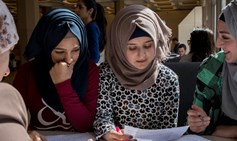
Involving Arabs in political decision-making is right in principle and vital for Israel’s social cohesion
Written By: Dr. Nasreen Haddad Haj-Yahya
The majority of the Arab public want to be included in the State’s decision-making processes, and support Arab ministers serving in the government.

Will Israel go to war in the coming months?
Written By: Prof. Tamar Hermann, Prof. Ephraim Yaar
The monthly Peace Index of the Israel Democracy Institute and Tel Aviv University, published today, finds that the Israeli public split on prospect of war in the coming months
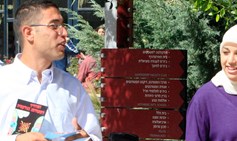
Israel’s High-Tech Industry Must Learn From Its Hospitals
Written By: Dr. Nasreen Haddad Haj-Yahya
The National Economic Council has repeatedly stated that the human capital potential of Arab society could be a significant source of economic growth, and is a resource that has not been developed.
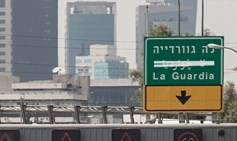
What Would Herzl Say About the Nationality Bill?
Written By: Dr. Nasreen Haddad Haj-Yahya
Israel’s leadership appears to have diverted from Theodor Herzl’s path. Instead of striving to create equality and a common ground, it is doing everything in its power to incite and divide for the sake of a few more votes.
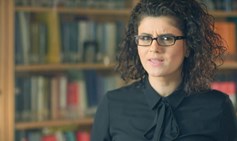
Equal Opportunity for Israeli Arabs
Written By: Dr. Nasreen Haddad Haj-Yahya
Recent findings by the Central Bureau of Statistics on the Israeli labor market reveal that 80% of the country's Arab citizens are employed in jobs with difficult physical conditions. Watch a Research Reel about the NEET phenomenon among Israel’s Arabs.
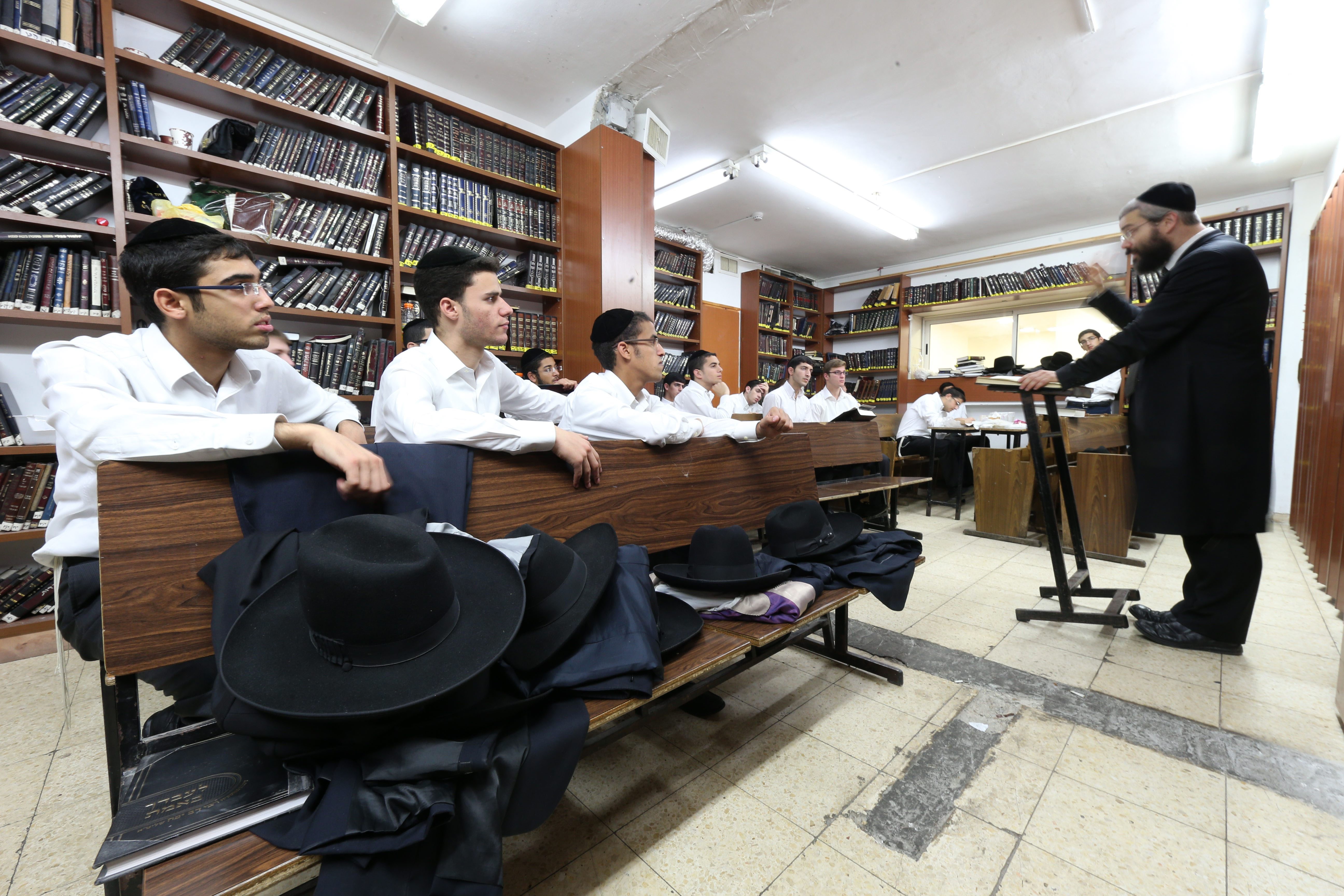
Israel's Next Economic Miracle?
Written By: Dr. Gilad Malach, Dr. Nasreen Haddad Haj-Yahya
Haredim and Arabs must be integrated into society and economy to take the start-up nation to the next level.

Baltimore and Ramla
Written By: Dr. Nasreen Haddad Haj-Yahya
The author proposes a number of policy recommendations that could help Israel’s Arab population, and could be applicable to any society that suffers from socioeconomic segregation and related challenges. This article was first published by Jmore.
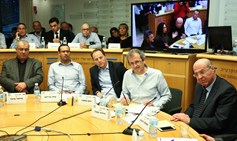
Arab Political Leadership in Israel
MK Dr. Benny Begin: "Before finalizing the five-year plan for the Arab community, 40 to 50 meetings were held between government representatives and Arab Knesset members."
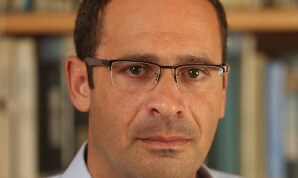
How To Prevent A Religious Civil War From Consuming Western Europe
Written By: Dr. Shuki Friedman
While Europeans are trying to maintain their sense of ownership over the public sphere, restrictions on religious expression in the public domain strike at Muslims’ most basic of rights: to continue living their lives as guided by the dictates of their own conscience. Will there be a religious-based civil war? This article was first published by the Independent Journal Review.

Surprised? Meet Israel’s New political Center
Written By: Prof. Yedidia Z. Stern
Although one need not agree with the positions held by Israel’s Arab citizens, it can’t be denied that they constitute an independent, moderate voice – and a promising political middle ground on the Palestine- Israeli conflict. This article first appeared in The Jerusalem Post.
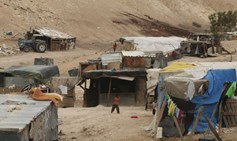
Israel is Wrong to Uproot Arab-Bedouin Citizens to Make Room for Jews
Written By: Adv. Eli Bahar, Thabet Abu Ras
Few stories illustrate the unfeeling and aggressive attitude of the Israeli government toward the Arab-Bedouin population of the Negev as well as the case of Atir-Umm al-Hiran. In this op-ed, which was first published by JTA, Eli Bahar and Thabet Abu Ras of the Abraham Fund discuss Israel's obligations toward its minority citizens.

The Road to Hi-Tech Runs through Taibeh
Written By: Dr. Nasreen Haddad Haj-Yahya
The integration of talented Arab employees into Israel’s hi-tech sector could relieve the human-resources shortage for employers. Encouraging Arabs to enter the hi-tech industry could improve their economic situation significantly, which would reduce inequality and contribute to a reduction of social tensions in the Arab community.

49% of Israelis Willing to Put Up Wall, Separate from Palestinians
The majority of Israeli Jews (52.8%) say Israel applies the law equally toward Jews and Palestinians living in the West Bank, contrary to a statement made last month by U.S. Ambassador Dan Shapiro. However, 50.1% of respondents thought Israel would be justified in unequal application of the law toward Jews and Palestinians in the territories.

The Israel Democracy Institute is Opposed to Expanding the Criteria for Disqualifying Knesset Candidates
Ahead of Sunday's vote on an 'Arab exclusion' bill by Yisrael Beiteinu Minister of Knesset Oded Forer, IDI's Prof. Mordechai Kremnitzer and Dr. Amir Fuchs sent a policy statement to the committee against the bill.
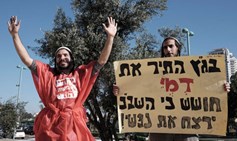
Torture Laws Must Apply To Arab And Jew Alike
Written By: Prof. Mordechai Kremnitzer
Dr. Mordechai Kremnitzer argues that it is time for Israel to examine the Shin Bet security service's regulations, based on the assumption that they apply to all residents of Israel. One law must apply to all suspected perpetrators of terrorist acts — Jews and Arabs alike.

Israeli Public Divided Over Trust for Arab Citizens
Written By: Mr. Chanan Cohen
IDI Researcher Chanan Cohen says that while the greatest tension in Israel is between Arab and Jewish Israelis, there is cause for hope. The vast majority of Jews support having Arabic translations of public signs in Israel, teaching Arabic in school and having Arab citizens represented in the civil service. This article was first posted in the New York Jewish Week.
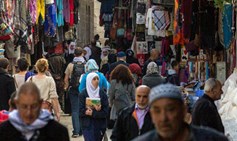
How Not to Achieve Coexistence
Written By: Dr. Sami Miaari
Arab elected officials have disappointed the public time after time with their lack of professionalism in how they lead their constituents toward political change. (This article was originally published by the Jerusalem Post.)

A Return to Coexistence
Written By: Adv. Eli Bahar
Eli Bahar says we must not accept this state of affairs as a fait accompli. He reminds that we can change the situation even if it seems that it has almost reached the point of no return.
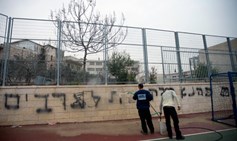
A Four-Step Plan to Combat Hatred between Jews and Arabs in Israel
Written By: Yair Sheleg
IDI Research Fellow Yair Sheleg outlines four steps that can allay fears, contribute to dialogue, combat hatred, and improve relations between Jews and Arabs in Israel

Banning Arab Workers: A Hypocritical Condemnation
Written By: Dr. Amir Fuchs
The mayor of Ashkelon's announcement following the massacre in a Har Nof synagogue that Arab workers would not be employed in his city was roundly condemned by members of the Knesset. Dr. Amir Fuchs points to the hypocrisy of these condemnations.

A Ready Alternative to the Nation State Law
Written By: Dr. Amir Fuchs
IDI researcher Dr. Amir Fuchs criticizes the proposed Basic Law that would establish Israel as the nation state of the Jewish people and recommends accepting Israel's Declaration of Independence as the preamble to Israel's future Constitution instead.

The Call to Exclude Arabs Is Unacceptable

Legal Opinion on the "Zoabi Bill"
Written By: Prof. Mordechai Kremnitzer, Dr. Amir Fuchs
A summary of a legal opinion on a proposed amendment to Basic Law: The Knesset that was submitted by Prof. Mordechai Kremnitzer and Dr. Amir Fuchs to the Ministerial Committee on Legislative Affairs.

The Admissions Committees Ruling: A Lack of Ripeness or Refusal to Decide?
Written By: Dr. Amir Fuchs
Dr. Amir Fuchs discusses the Israeli High Court of Justice's decision to uphold the "Admissions Committees Law," which allows small communities to reject applicants due to a lack of social suitability.

On Intermarriage, Judaism, and Democracy in Israel
Written By: Benjamin (Benny) Lau
Rabbi Dr. Benjamin Lau shares thoughts on the tension between Judaism and democracy, in response to the public protests against the marriage of a Jewish woman who converted to Islam and an Israeli Arab.

Common Declaration on Racism and Jewish-Arab Relations
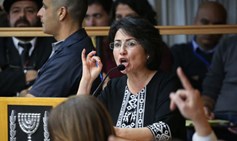
Heart vs. Head: The Case of Hanin Zoabi
Written By: Prof. Mordechai Kremnitzer, Admiral (Res.) Amichay (Ami) Ayalon
Prof. Mordechai Kremnitzer and Admiral Ami Ayalon argue that while the heart has difficulty defending MK Hanin Zoabi's freedom of expression, the head demands that we object to the decision to remove her from parliamentary activity for six months.

A Social Iron Dome for Jewish-Arab Relations
Written By: Prof. Yedidia Z. Stern
In an op-ed in <em>Yedioth Ahronoth</em>, Prof. Yedidia Stern warns that the Iron Dome could not protect Israel from hatred between Jewish and Arab citizens, and stresses the need for both sides to use imaginative empathy to mend the fabric of Israel's shared society.?

Education for Democracy as a Remedy for Violence
Written By: Dr. Amir Fuchs
Attorney Amir Fuchs asserts that educating Israeli students regarding democracy and civics from a young age and throughout their education is the best way to prevent hatred, violence, and racism.

Price Tag Attacks: Racist Crimes
Written By: Dr. Amir Fuchs
In an article in <em>Haaretz</em>, Attorney Amir Fuchs stresses the need to wage a genuine war against racism, in order to preserve the values of Zionism and safeguard the Jewish and democratic state.

2014 Israeli Independence Day Mini-Survey
87% of Jewish Israelis Celebrate Yom HaAtzmaut as a Holiday, 68% of Arab Israelis Do Not
Majority of Israeli Jews Support Reducing Gov't Support for Institutions Which Mark Israeli Independence Day as the “Nakba”

Public Opinion: Is Israel Independence Day a Holiday?
Written By: Mr. Chanan Cohen
Do Jewish and Arab citizens of Israel see Yom Ha'atzmaut as a holiday? Do perceptions among Jews vary depending upon level of religiosity or position on the right-left political spectrum? Find out in this Mini-Survey from IDI's Guttman Center.
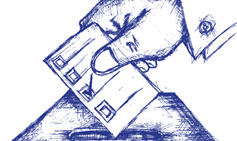
Basic Law: Referendum—Changing the Rules of the Game of Israeli Democracy
Written By: Dr. Dana Blander
Dr. Dana Blander draws on the findings of Israeli public opinion polls and explores some of the ramifications of the new Basic Law: Referendum, a law that establishes a system in which every citizen is entitled to participate in historic decisions on withdrawal from territory.

Non-Jews in a Jewish State: Searching for a New Paradigm
Written By: Kalman Neuman
In an article in The Jewish Week, Rabbi Dr. Kalman Neuman of IDI's Religion and State project examines some of the thorny questions of Jewish law when it comes to non-Jews in a Jewish state.
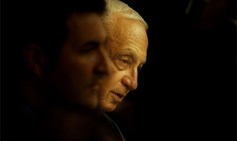
Remembering Ariel Sharon (1928–2014)
Written By: Prof. Ofer Kenig
Dr. Ofer Kenig presents some of the milestones in the career of Ariel Sharon, the 11th Prime Minister of the State of Israel.

The Contributors to the State Bill: Contributing to the Jewish-Arab Divide
Written By: Dr. Talya Steiner, Prof. Mordechai Kremnitzer
Prof. Mordechai Kremnitzer and Att. Talya Steiner warn that the veteran's benefit bill, which is intended to extend benefits to those who have contributed to the State, discriminates against Israel's Arab citizens, who are exempt from military service in Israel.

The Veterans Benefits Bill: Legal License to Discriminate
Written By: Prof. Mordechai Kremnitzer, Dr. Talya Steiner
Prof. Mordechai Kremnitzer and Attorney Talya Steiner warn that the proposed veterans benefits bill, which would give preferential treatment in employment, higher education, and housing to those who have served in the Israeli army, gives license to discriminate against Israel's Arab minority.

It isn't for the State to Promote Arab-Jewish Coexistence
Written By: Yair Sheleg
In an op-ed from <em>Haaretz</em>, IDI Research Fellow Yair Sheleg responds to the law allowing admissions committees in small community settlements to bar new residents who do not suit the “lifestyle and social fabric” of the community.

Clear-Cut Racism or Complicated Relationship?
Written By: Yair Sheleg
Are the ostensibly anti-Arab bills under consideration by the Knesset, the “Rabbis’ Letter” that forbids the sale of real estate to non-Jews, and the findings of the 2010 Israeli Democracy Index clear-cut indicators that racism is on the rise in Israel today? Or are more complex factors at play? IDI Research Fellow Yair Sheleg shares his views on this matter.
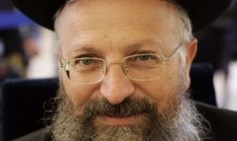
IDI Denounces Rabbis' Petition against Rental to Arabs
On December 7, 2010, Rabbi Shmuel Eliyahu, Chief Rabbi of Tzfat, and 49 other municipal rabbis in Israel issued a letter ruling that Jewish law forbids the sale or rental of property in Israel to gentiles. IDI joined the voices that condemned this letter.

Implications of the 'Nakba Law' on Israeli Democracy
Written By: Roy Konfino, Prof. Mordechai Kremnitzer
Prof. Mordechai Kremnitzer and Roy Konfino argue that the proposed 'Nakba Law,' which forbids public mourning of Israel's Independence Day, is anti-democratic, unconstitutional, and detrimental to freedom of expression and of peaceful demonstration in Israel.
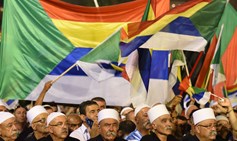
The Nation-State Law, One Year Later: What has Changed?
Written By: Dr. Amir Fuchs
A year has passed since, The Basic Law: Israel the Nation-State of the Jewish People, was passed. What, if anything, has changed in that time?

Arab Politics in Israel: Where are they Headed?
Written By: Dr. Arik Rudnitzky
The real story of the April 2019 elections took place outside the polling booth. In the Arab sector, the Movement to Boycott the Knesset Elections, a grassroots group based on Arab young adults and university students, working on the social networks with a shoestring budget, conducted an effective campaign with a simple and catchy slogan: “Boycott: The People’s Will.” This message stood in utter contradiction to the motto of the elections in 2015: “The Joint List: The People’s Will.”
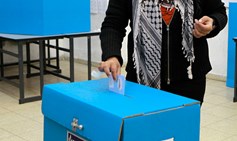
The Voice that Doesn’t Count
Written By: Prof. Yuval Shany
One of the main explanations for the dramatic decline in voter turnout in the Arab Israeli sector in the last elections (49%, versus 63% in the 2015 elections) is the sense that the voice of Israeli Arabs — is a voice that doesn’t count.

Israel's Alt-Right is Now Mainstream - Are Lawmakers Doing Enough to Stop It?
Written By: Yardena Schwartz
27 years after Kahane’s murder, Jewish extremists praise the rabbi, calling him a righteous prophet whose politics were ahead of his time. Like Kahane, Gopstein’s ultimate dream is an Israel that operates according to Jewish law, or Halacha, where the only Arabs who live there are those loyal to a Jewish theocracy. “At this rate,” he says of Palestinian citizens of Israel, “it’s either us or them”
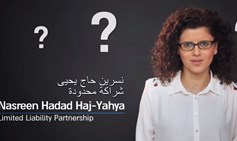
Limited Partnership: Arabs and Jews in Israel
Written By: Dr. Nasreen Haddad Haj-Yahya
On the complex relationship between Arabs and Jews in Israel and the secret to bringing down the walls of fear and prejudice
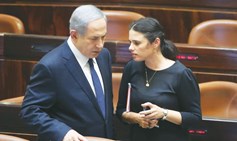
Who's Afraid of a Jewish State with Equality for All?
Written By: Yohanan Plesner
A state that is proud of its identity has nothing to fear from granting all its citizens equality.

Harmful Revolution: The Nation-State Bill’s Assault on Equality
Written By: Prof. Yedidia Z. Stern
Israelis must unite around a balanced arrangement that asserts that Israel is the nation-state of the Jewish people that guarantees equality for all its citizens.

Religion Can Be the Bridge Linking Jews and Muslims
Written By: Dr. Shuki Friedman
How both faiths can use their common threads and customs as a means to connect, dialogue and cooperate.
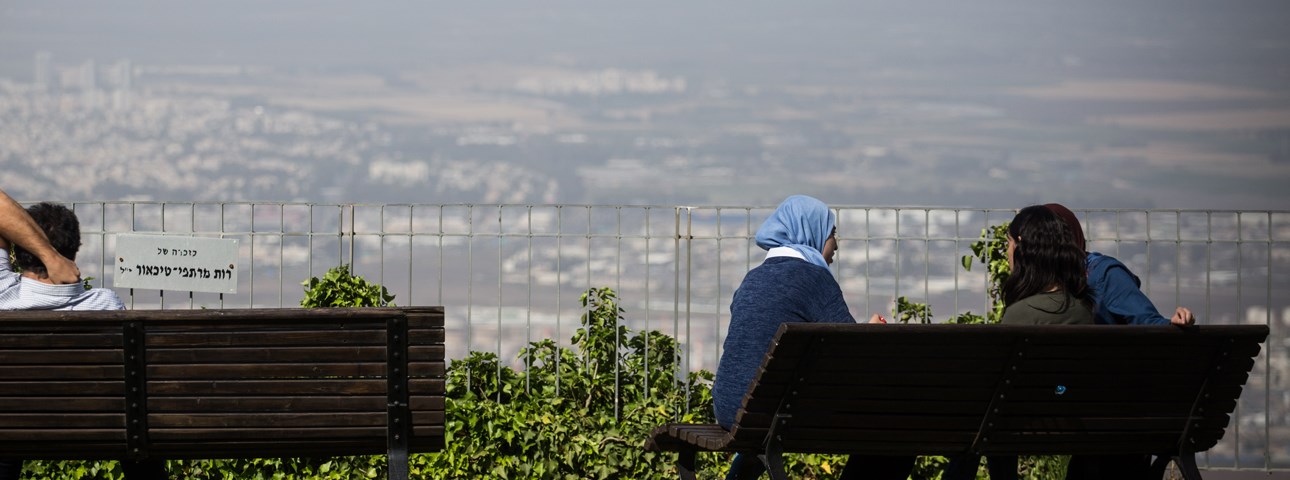
Time to Include Arabs among the Decision-Makers
Written By: Dr. Nasreen Haddad Haj-Yahya
The state and its Arab leadership, not only the political leadership, must work together to bring as many Arab citizens as possible into the decision-making echelons.
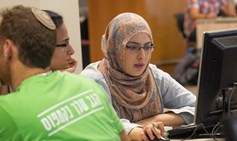
Opportunities Now: Arab Employment in the Galilee
Written By: Dr. Nasreen Haddad Haj-Yahya
The north presents real opportunities for Israel’s society and economy. Turns out that the solutions have been in plain sight all along.

'Yes' to a Nation-State, 'No' to a Nationalistic State!
Leaders of the Israel Democracy Institute call for alternative proposal that would place nation-state of the Jewish people on equal footing with democratic obligation to equality for all Israeli citizens.
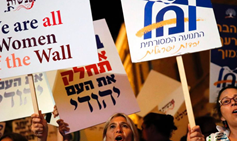
United by Outrage? Israel's Arab Citizens and American Jews
Written By: Dr. Nasreen Haddad Haj-Yahya
Now you know what it's like to feel marginalized and unequal in Israel. Arab citizens know that all too well. That's why we must join forces.

